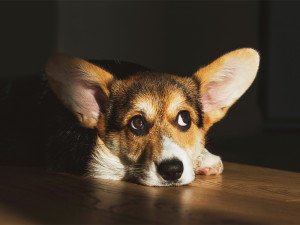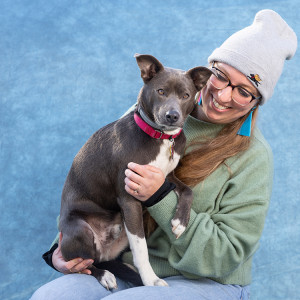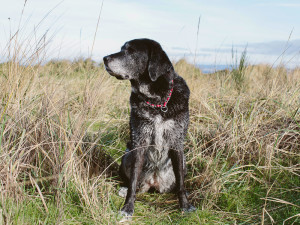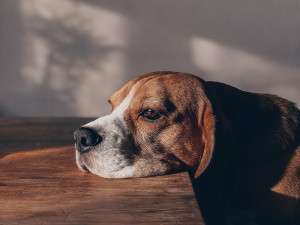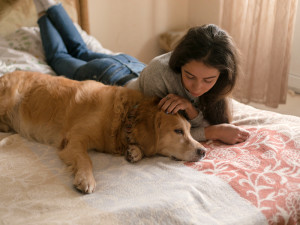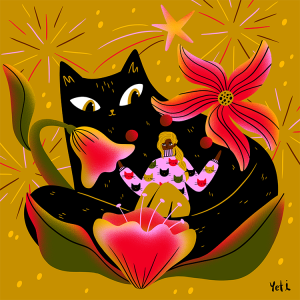Seeing Ghosts of Their Dogs Can Help Grieving Pet Parents, New Study Says
People welcome paranormal activity if their pets are involved.
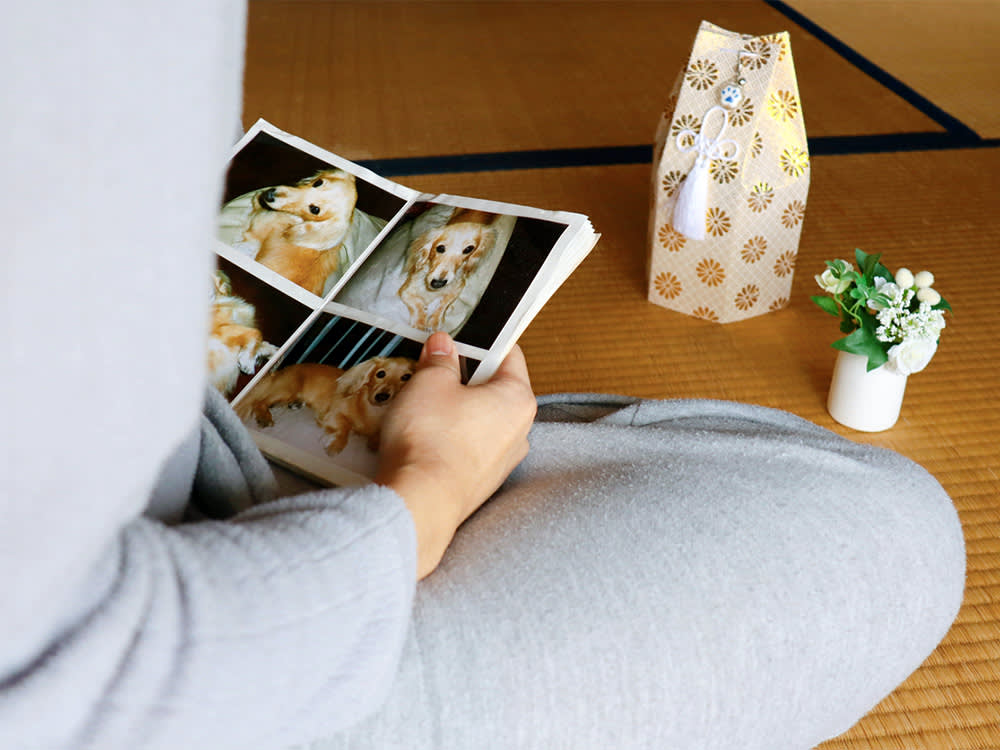
share article

Your pet wants you to read our newsletter. (Then give them a treat.)
Most people don’t want anything to do with ghosts. In pop culture, ghosts are somewhere between in-laws and The Literal Devil in terms of undesirable encounters. There are endless superstitions about how to keep spirits far away: don’t rock an empty rocking chair, don’t sleep with a mirror facing your bed, keep salt on your windowsill, don’t even think about touching a Ouija board.
But it turns out that when it comes to grieving our departed pets, a paranormal experience may be more healing than creepy. A new studyopens in a new tab published in Anthrozoös found that the great majority of pet parents who have had paranormal encounters with their departed dogs were comforted by the experience.
Supernatural encounters with pets
Experiencing paranormal activity during a period of grieving — for a human or an animal companion — is more common than most people might expect. A previous studyopens in a new tab found that of 33 grieving pet parents surveyed, 48 percent had sensed the presence of their deceased pet after their death. Some researchersopens in a new tab are inviting us to rethink our attitude toward “ghost” sightings during the grieving process; while they’re typically stigmatized in psychiatric science, they’re common enough that they may not be disruptive or unhealthy. And often, as the new study finds, they aren’t even upsetting — just the opposite, in fact.
The study analyzed 544 online comments gathered from X and Instagram; participants responded to the question “If you’ve lost a dog, have you had an experience like seeing their ghost, receiving a sign, did they communicate with you?”
The responses were divided between physical experiences (hearing, seeing, and touching the departed dog) and interpreted experiences (visitations in dreams, signs received from nature, or other feelings and phenomena that are perceived as related to the departed dog).
Some of the physical experiences respondents described included feeling a dog’s nose touch them, seeing their departed dog walk down the hall, or hearing their dog’s collar jingle. “I’ve heard my late pup bark from his chair in my office. Clear as day; I know it was him,” one participant said. Another described seeing their departed dog: “I saw her sleeping next to our bed in the dark. I had to miss stepping on her. I guess I was seeing her with my heart.”
During interpreted experiences, participants described receiving spiritual signs from their deceased dog without literally encountering the animal’s presence. “When we lost our Ellie, a week to the day after she passed, at the exact time of her passing, the smoke detector in our spare bedroom (her favorite place to relax) started beeping,” said one respondent. Another described recurring dream visitations: “My dog Randi has come to visit me a few times in my dreams. I don’t know how to explain the difference between me dreaming about someone and them visiting me in my dreams. I just know.”
Positive feelings resulting from supernatural encounters
When the study’s lead author, Jennifer Golbeck, analyzed the feelings people associated with their supernatural encounters, she found that there were three different categories of reactions: positive feelings, mixed feelings, and “messages, where people said they felt the spirit of their dog was visiting to say hello, to say goodbye, or to check in on them.”
The great majority of the paranormal experiences — 74.6 percent — resulted in positive feelings. Participants described feeling comforted, reassured, and protected by the pet’s presence. “I hear mine at night — their different shakes and noises they’ve always made when going to bed,” one respondent said. “It gives me comfort.”
Messages were the next most common category, with 16.9 percent of participants receiving a message from their deceased pet. “We had to put our 13 year old Golden to sleep last September. I was heartbroken and still am. I couldn’t have her suffer any longer. When I got home I had the most beautiful monarch butterfly approach me and then lift off. I know it was her saying goodbye,” one participant said.
Only 8.7 percent of the experiences were classified as resulting in mixed feelings. A few respondents were frightened by the experience, but most of the negative reactions were feelings of heartbreak — respondents felt they had lost their pet all over again once the paranormal event was over. “For about 10 years after my first dog died, he kept visiting me in my dreams, crossing back from the great beyond to just stay with me a while,” one person said. “In the dreams, it used to break my heart because I knew he’d have to go again each time.”
Golbeck notes that these results are contrary to typical understandings of paranormal experiences as intrusive and distressing. “Visitations from the dead need not be distressing; the meaning of such interactions vary across cultures and between individuals,” Golbeck wrote.
She adds that the process of mourning pets is often minimized, which isolates grieving pet parents. Plus, pet parents often have to make end-of-life decisions, like euthanasia, for their pets, which makes grieving even more difficult. “Given that disenfranchised grief is common due to the lack of cultural support for people mourning their dogs, and grief over companion animals is often complicated by guilt, these supernatural experiences may serve as an important source of comfort and a way for the bereaved to engage with loss.”

Sio Hornbuckle
Sio Hornbuckle is a writer living in New York City with their cat, Toni Collette.
Related articles
![Portrait Of Large, Senior, Mixed Breed Dog On Beach]() opens in a new tab
opens in a new tab10 Tips for Grieving a Pet
For National Pet Memorial Day — Sept. 12th — we asked 5 grief experts how to cope with feelings of guilt after we lose a pet.
![A dog resting its face on a wooden table.]() opens in a new tab
opens in a new tabDo Dogs Grieve When Other Dogs Die?
A study confirms our pets can have heartbreaking reactions to the loss of a canine companion.
![Man hugs his dog to his face]() opens in a new tab
opens in a new tabHow Will I Know When It’s Time?
End-of-life veterinary specialist Dr. Shea Cox on how to make the most difficult decision in your pet parenting journey.
![A woman laying on the bed with her Golden Retriever dog laying next to her]() opens in a new tab
opens in a new tab8 Practical and Healing Ways to Remember Your Pet After They Pass
Even though it’s the last thing you want to think about.
![an illustration of a big black cat cradling a small person. the cat is surrounded by three pink flowers]() opens in a new tab
opens in a new tabAshes to Ashes, Pet to Plant
The founders of Pleia, a startup that practices pet composting, on this method of honoring pets after death.
